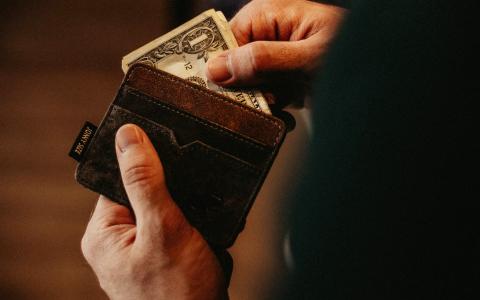
After a remarkable 54-year tenure on Wall Street, finance luminary Dick Bove has declared an imminent shift in global monetary dynamics, positing the end of the US dollar's reign as the world's reserve currency.
Since the conclusion of World War II, the US dollar has been the cornerstone of international finance and trade. However, Bove, who recently retired, expressed to The New York Times a firm conviction that this long standing era is nearing its conclusion. At the age of 83, he foresees a future where China's burgeoning economy overtakes that of the United States. This shift, he argues, is largely attributable to the United States' strategic decision to outsource its manufacturing base, inadvertently granting other nations greater sway over global production, economic movements, and monetary flows.
In the evolving financial landscape, Bove envisions a significant role for cryptocurrencies like bitcoin, potentially stepping in to occupy the space vacated by the waning influence of the dollar. Currently, assets denominated in US dollars constitute nearly 60% of global reserves, according to the International Monetary Fund. Yet, there is an emerging trend of 'de-dollarization' as various countries actively seek alternatives to reduce their dependence on the dollar.
This movement gained momentum particularly after the United States leveraged Russia's dependence on the dollar to impose sanctions in the wake of its 2022 Ukraine invasion. Countries as diverse as Brazil, Argentina, India, and Bangladesh are now considering backup currencies and assets, including the Chinese yuan and cryptocurrencies like bitcoin, for their international trade and payment transactions.
Many governments have voiced their concerns about the disproportionate impact of US monetary policies on global economies and currencies. The strength of the dollar, they argue, has inadvertently marginalized poorer nations by making imports prohibitively expensive. Additionally, with the United States achieving energy self-sufficiency through domestic shale oil and renewable energy sources, the necessity for a petrodollar is diminishing.
Throughout his career, which spanned 17 different brokerages, Bove has been known for his forthright and often contrarian perspectives. In his discussion with the Times, he criticized analysts who fail to acknowledge the potential decline of the dollar, likening them to "monks praying to money," too entangled in the traditional financial system to recognize its evolving nature.
Bove's career, which began in the late 1970s as a construction analyst, has been marked by his keen foresight and contrarian views. He was among the few market observers, alongside figures like Michael Burry and John Paulson, to identify fundamental issues in the US housing market well before its 2008 collapse, which precipitated a global financial crisis. He had already identified a "powder keg" situation in the housing sector as early as 2005, years before the crisis reached its peak.
In his interview, Bove also acknowledged his tendency to embrace a contrarian and challenging stance. "I've liked to be a pain in the ass at times," he admitted, reflecting on his approach to confronting traditional financial paradigms and sparking necessary debates in the sector.



